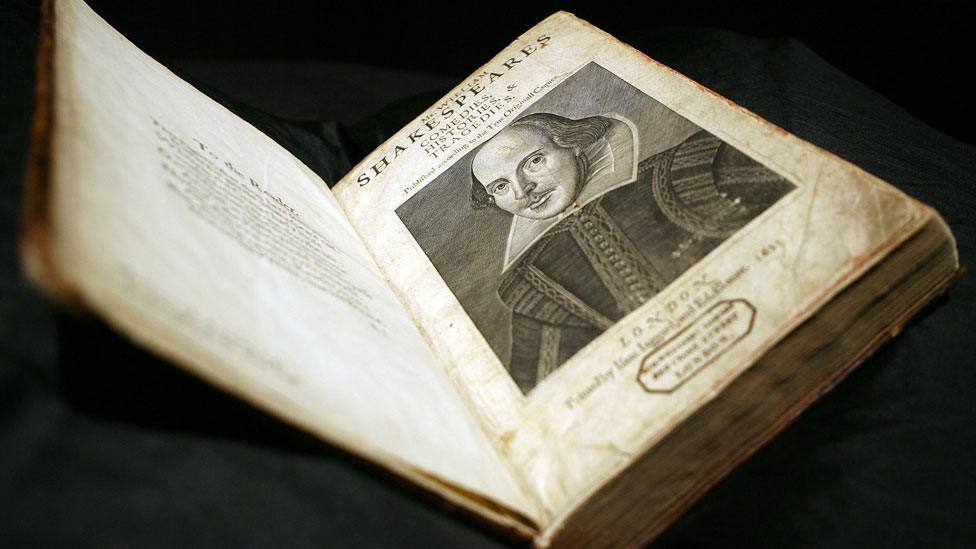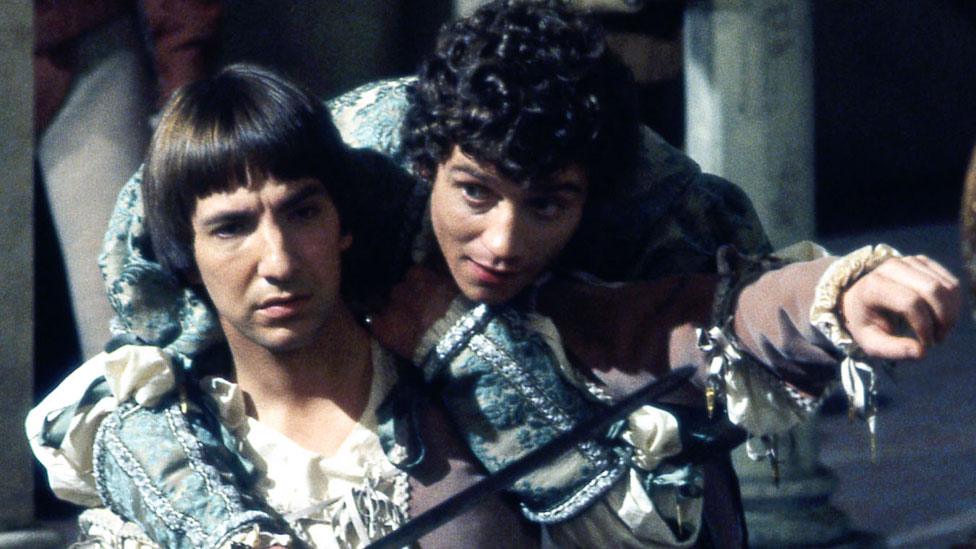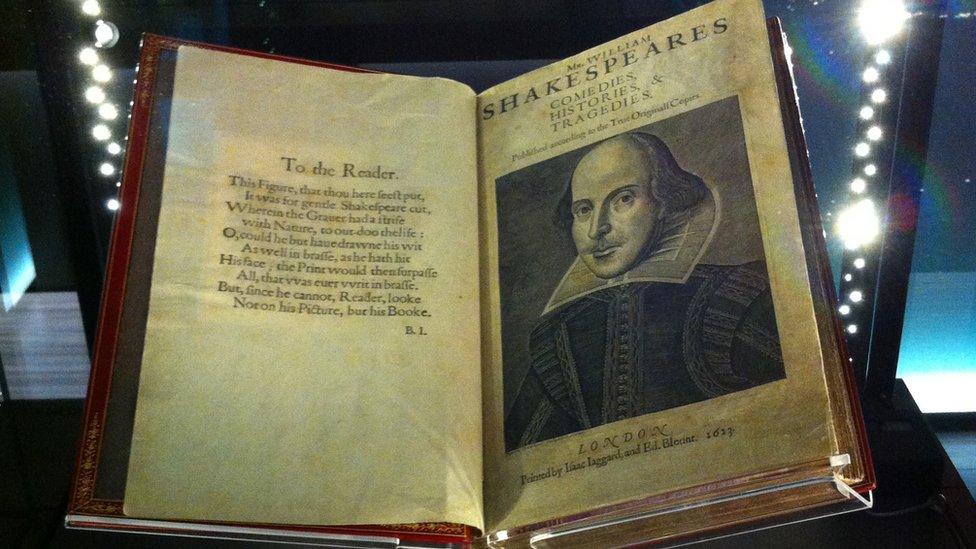Some Shakespearean phrases not coined by Bard, academic claims
- Published

The first published collection of Shakespeare's plays was printed in 1623
Many words and phrases Shakespeare is credited with coining were already in common usage when he was writing, an Australian academic has claimed.
"His words were mostly in circulation already or were logical combinations of pre-existing concepts," writes Dr David McInnis of the University of Melbourne.
Dr McInnis attributes the anomaly to an Oxford English Dictionary, external (OED) "bias" towards "famous... literary examples".
"A wild goose chase" is among the phrases whose provenance he questions.
According to the OED, the earliest example of the phrase is to be found in Romeo and Juliet, which is believed to have had its first performance in 1594 or 1595.
According to Dr McInnis, however, the English poet Gervase Markham published a book about horsemanship in 1593 that uses the phrase "at least six times".
Another disputed phrase is "eaten me out of house and home", thought to originate in a play - Henry IV Part 2 - that Shakespeare is believed to written between 1596 and 1599.
Yet Dr McInnis says he found an earlier example in a digital resource - Early English Books Online, external - that dates from 1578.

Mercutio, as played in a 1978 BBC production of Romeo and Juliet by Anthony Andrews (right), was the first person to say "wild goose chase" according to the OED
According to the academic, "The Complete Works of Shakespeare was frequently raided [by the OED] for early examples of word use, even though words or phrases might have been used earlier, by less famous or less literary people."
Shakespeare's skill, he goes on, was to refashion existing phrases to make them "concise and catchy" - though he does concede that certain well-known idioms were all the bard's own invention.
One of the latter is "to make an ass of yourself", a phrase that derives from Bottom the weaver's magical transformation into an ass in A Midsummer Night's Dream.
Dr McInnis's claims, reprinted in Tuesday's Daily Telegraph, external, were originally made in an article he wrote for the University of Melbourne's online magazine, external.
A spokesperson for the OED said its own revision programme had already uncovered earlier evidence for many words and phrases previously attributed to Shakespeare.
The spokesperson also highlighted a piece on the Oxford University Press blog, external, in which academic linguist Edwin Battistella suggested about half of the items formerly believed to be Shakespeare coinages were now shown in the OED as having been used earlier.

Follow us on Twitter @BBCNewsEnts, external, on Instagram, external, or if you have a story suggestion email entertainment.news@bbc.co.uk, external.
- Published5 September 2016

- Published1 April 2012
